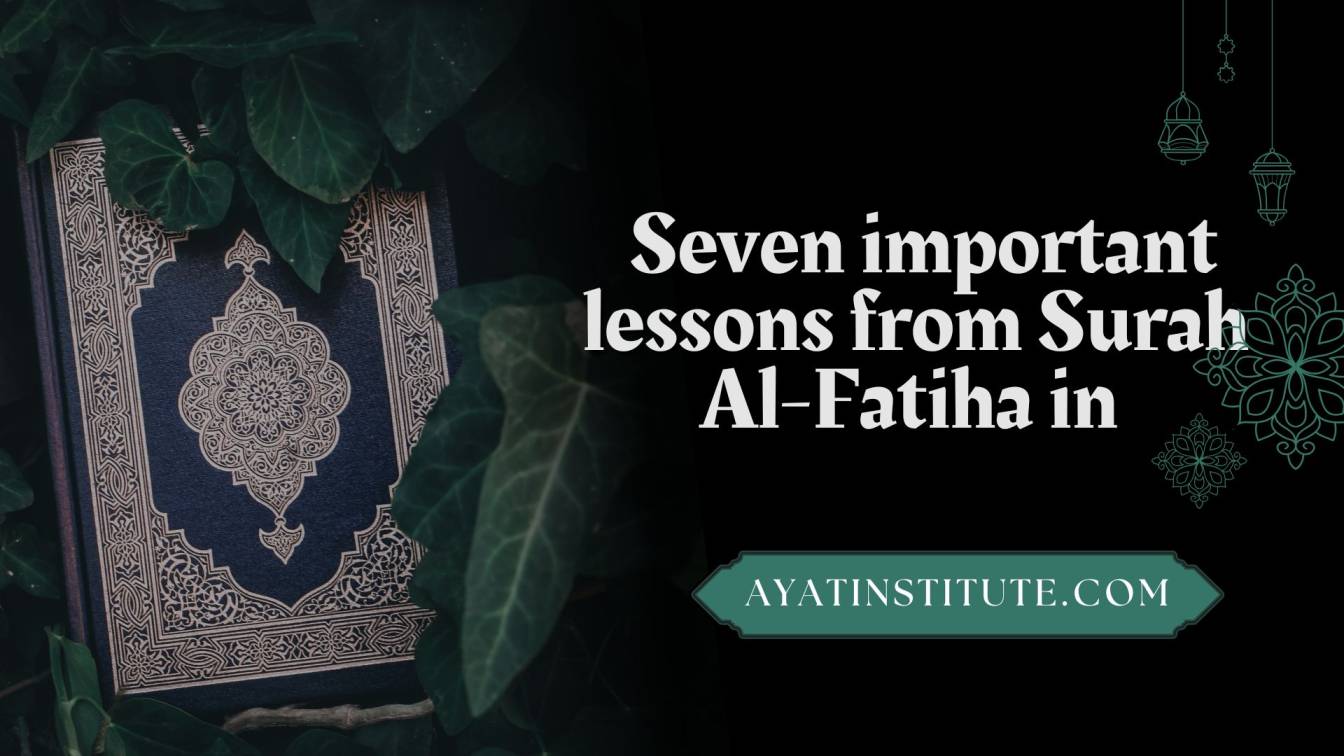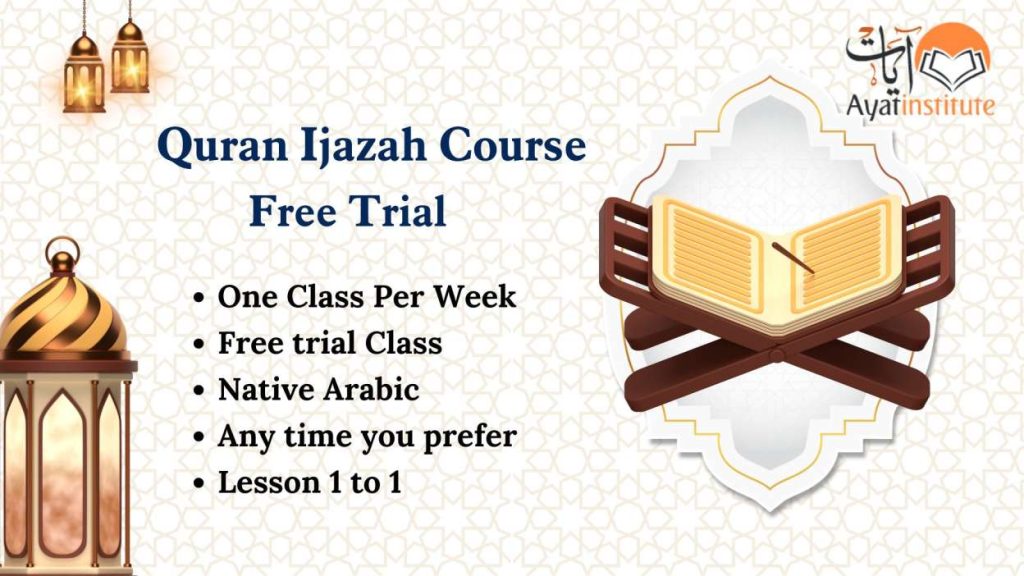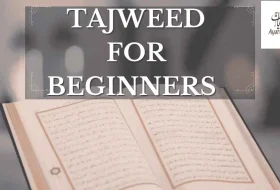Surah Al-Fatiha is more than prayer words—it carries seven lessons that change our lives. Discover mercy, gratitude, sincerity, and faith on the straight path.
Introduction:
- Do you know the seven important lessons from Surah Al-Fatiha in our lives?
- This surah carries deep wisdom and guidance.
- It is important to understand and memorize Surah Al-Fatiha because it is called the Mother of the Holy Quran.
- We cannot perform prayer without Surah Al-Fatiha, and it is also the first chapter we read in the Quran.
- This surah creates a strong connection between Allah and you, reminding us of His mercy, guidance, and constant presence.
- When you recite it, imagine speaking directly to Allah. That is why it is one of the greatest Surahs.
- From my experience, understanding the meanings and goals of Surah Al-Fatiha truly brings light and clarity to the mind.
- Do not worry about learning the seven important lessons from Surah Al-Fatiha in our lives. We will explain them here.
- Continue reading this enjoyable and meaningful article to explore the wisdom and benefits of this powerful chapter.
Book Free Trial & Start your journey of Quran, Arabic, and Islam e-Learning today
Recognizing Allah’s Lordship and Submitting to His Authority
Understanding Allah’s Role as the Lord of All Worlds:
-
- There is an important question: Who is the true Lord of the worlds? The answer is clear—it is Allah alone.
- Allah is our Lord because He created us and provides us with food, drink, and every blessing we enjoy.
- It is only fair and just to direct all acts of worship to Him, and not to anyone else.
- Some people who are not believers worship the sun, the moon, statues, or even Isa as divine.
- This behavior is considered disrespectful to Allah. Logic tells us to praise the Creator, not His creations.
- I should always honor the One who created me, gave me life, and sustains me with countless gifts.
- Rejecting this truth shows blindness. Turning worship to creation instead of the Creator reflects ignorance and arrogance.
- This is one of the seven important lessons from Surah Al-Fatiha in our lives, teaching us about true worship.
Reflecting on His Endless Mercy and Absolute Power:
- The mercy of Allah is endless and written upon Himself as a promise for creation.
- Allah divided mercy into 100 parts. He sent one part to earth and saved the rest for the Last Day.
- His kindness covers humans, animals, and all living beings, despite their weakness and mistakes.
- We see mercy in the world when animals care for their children, even if they are dangerous creatures.
- At the same time, Allah has absolute power to punish those who reject faith.
- Still, He gives people time to return, showing that His mercy always comes before His punishment.
- Understanding Allah’s mercy and power is one of the seven important lessons from Surah Al-Fatiha in our lives.
The Importance of Gratitude in Building a Content and Peaceful Life
Learning to Appreciate Both Big and Small Blessings:
- What is the most important thing in life? It is being satisfied with whatever Allah has decreed for us.
- Opposing the Qadar of Allah brings no benefit, while acceptance brings peace and countless rewards.
- When we show gratitude, Allah grants us hasanat, and when we refuse, we face sayyi’at instead.
- Every blessing, whether big or small, comes from Allah, and we must appreciate them all with thankfulness.
- Some people receive many blessings yet forget to be grateful, while others show gratitude for little and find peace.
- This matter is connected to the heart. We must purify it from envy and constant comparison with others.
True contentment with Allah’s blessings reflects one of the seven important lessons from Surah Al-Fatiha in our lives.
Cultivating a Mindset of Positivity and Thankfulness
- Every Muslim should remain positive and thankful to Allah, no matter the circumstances or challenges faced in life.
- This attitude brings comfort and peace to the heart in all situations.
- The Prophet Muhammad, peace and blessings upon him, explained that every condition of a believer is good.
- If blessings come, he is thankful. If hardship comes, he is patient.
- Such a mindset benefits not only the Muslim but also those who interact with him.
- Gratitude and patience together form one of the seven important lessons from Surah Al-Fatiha in our lives.
Seeking Continuous Guidance from Allah to Stay on the Right Path
Trusting Allah’s Wisdom During Times of Confusion and Hardship
- Many people struggle to understand the wisdom of Allah when facing hardship or painful confusion.
- We must remember that Allah created us and is more merciful to us than our own mothers.
- The Prophet Muhammad once saw a mother reunited with her lost child. She hugged him tightly with love and relief.
- He then said that Allah is even more merciful to His servants than this mother to her son.
- Hardship is not meant to destroy us. It is a way to return to Allah and seek His guidance.
- Allah does not benefit from punishing us. His wisdom in trials is only for our growth and closeness to Him.
- Realizing this truth is part of the seven important lessons from Surah Al-Fatiha in our lives.
Strengthening Unity in Worship by Devoting Ourselves to Allah Alone
Building Sincerity and Purity in Our Acts of Worship:
- One of the most vital lessons in Islam is to worship Allah with sincerity and purity.
- Allah alone deserves our worship, and only He rewards us for it. Directing worship to others is meaningless.
- If worship is not purely for Allah, it may resemble the qualities of the hypocrites.
- No one can grant you hasanat for your prayers, fasting, or good deeds except Allah.
- On the Day of Judgment, Allah will ask people to seek reward from whom they showed off to.
- This happens when someone worships only to impress others, forgetting the Lord of all people.
- Such insincere worshipers risk being among the first three groups punished in Hellfire.
- Sincerity in worship is one of the seven important lessons from Surah Al-Fatiha in our lives.
Avoiding the Path of Misguidance by Learning from Past Generations
Staying Steadfast in Faith Despite Challenges and Temptations
- The Deen of Islam was revealed by Allah, delivered through Jibreel, and taught by Prophet Muhammad.
- The companions applied Islam correctly, and the first three generations remain the best examples for Muslims.
- Following their path is the straight way that we ask for in Surah Al-Fatiha.
- We must avoid altering the deen, as those who change it place themselves in great danger.
- The only way to remain steadfast despite challenges is to follow their guidance and take them as role models.
- Reading about their lives and imitating them strengthens our faith and protects us from misguidance.
- This commitment is one of the seven important lessons from Surah Al-Fatiha in our lives.















